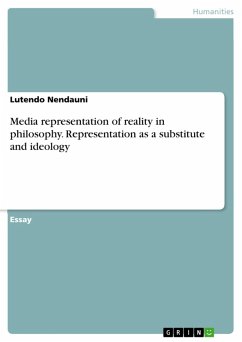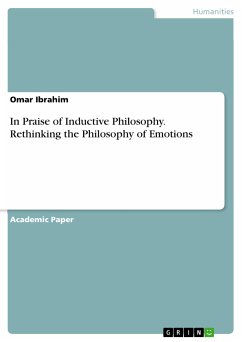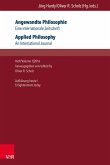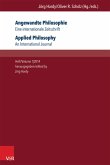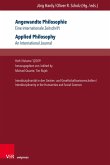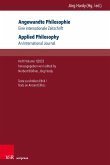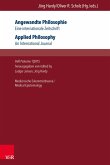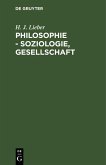Essay from the year 2016 in the subject Philosophy - Practical (Ethics, Aesthetics, Culture, Nature, Right, ...), University of Venda, language: English, abstract: This essay seeks to critically discuss the concept of representation in media discipline as well as to examine how different media scholars view the concept of representation. Representation is simply the act of imitation or the act of identification, people identify themselves by means of their mimetic ability, when they see themselves in others and perceive a state of mutual equality. Representation of reality may refer to simile, similarity and symbolization of the world when we take it as a transformation of myth. The idea of representation at its simple level involves our understanding for the action of representation and how we define that act. This essay details media representation of reality as outlined by key theorists and their theories in the classical age and it further explains representation as a substitute and also as ideology. Classical age refers to the antique period before the birth of Jesus Christ. Key philosophers during this period included people such as Plato who is the ancient Greek philosopher; Aristotle who is also a Greek philosopher and he was Plato's student; Saint Thomas Aquinas who is a theologian from Italy; Galileo Galilei an Italian physician, astronomy and philosopher and last but not least Francis Bacon who is an English philosopher and leader of scientific revolution. I will critically do an in-depth analysis/discuss representation as outlined by this philosophers and I will also distinguish representation as a substitute and ideology.
Dieser Download kann aus rechtlichen Gründen nur mit Rechnungsadresse in A, B, BG, CY, CZ, D, DK, EW, E, FIN, F, GR, HR, H, IRL, I, LT, L, LR, M, NL, PL, P, R, S, SLO, SK ausgeliefert werden.

